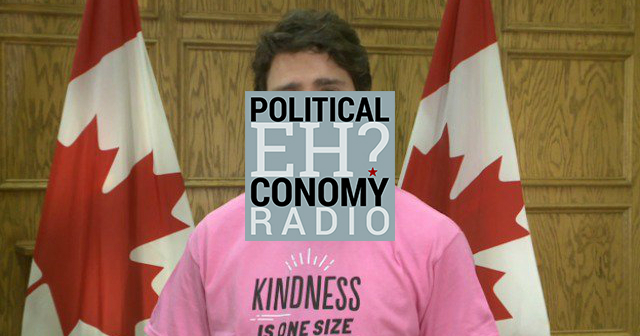Justin Trudeau’s friends in finance, consulting and big business dominate the grandly named Advisory Council on Economic Growth. A few months after recommending a giant privatization scheme, the gang is back with more ideas, many very good for them but very bad for you and me.
The biggest news: a recommendation to increase the retirement age from 65 to 67. Trudeau has been breaking promises and sticking with Stephen Harper’s policies left, right and centre, so it’s no surprise to see his economic advisors raising another Conservative corpse from the dead—despite the fact that Trudeau actually rolled back Harper’s shift of the retirement age up to 67 in his first budget. Of course, when Harper proposed it, it was mean-spirited, when Bay St. wants it, it’s the bleeding edge of innovative growth strategy!
Beyond this one terrible idea, the Council’s report is full of warmed-over buzzwords and overblown market-speak. Recommendations will “re-imagine the role of government (specifically, as a convener/catalyst and as an investor)” and “catalyze the formation of business-led ‘innovation marketplaces.'” There’s a bit of Sheryl Sandberg feminism for the 1%: gender inequality ameliorated via “a corporate gender diversity challenge.” Yet elsewhere the ideological bent is more transparent: “much of our potential is untapped, held back due to policies (e.g., excessive regulations).” Chamber of Commerce talking points shouldn’t be a surprise in a document prepared in the C-suite, but they’re being sold as “inclusive growth.”
